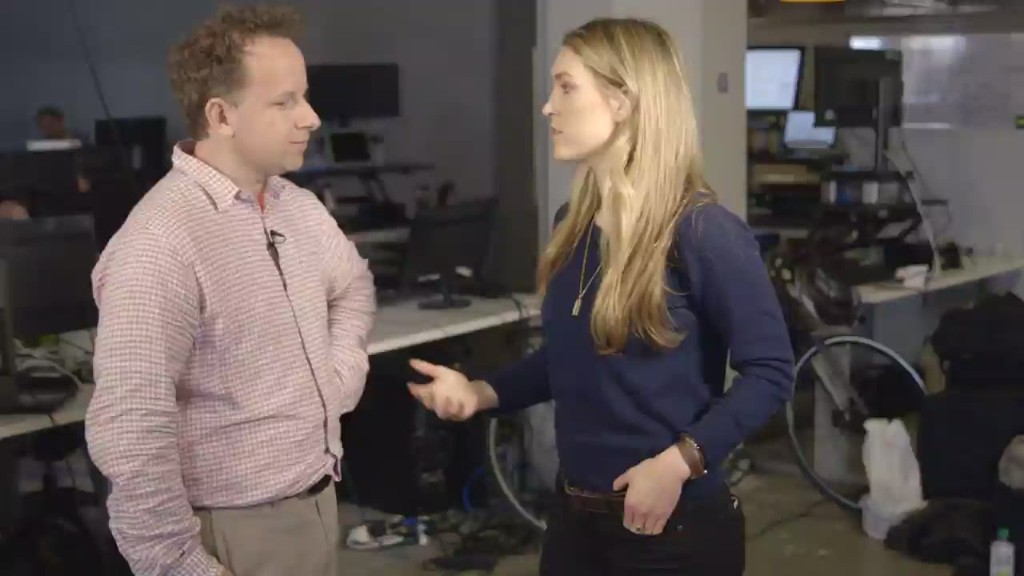
Cancer is good at hiding.
It's so good that sometimes sick patients are sent home with a clean bill of health.
And screenings don't always help: A 2013 study by Oxford University found "no evidence" that screening programs are responsible for the decline in breast cancer, and a study by the Huntsman Cancer Institute last year found that colon cancer is missed in about 6% of colonoscopies.
A company is looking to change that margin of error by bringing a super-smart computer into the examination room.
"In one panel of scans that we looked at, when you look at the number of times that radiologists sent someone home with a clean bill of health, about 7% of the time that patient was ultimately found to have cancer," said John Zedlewski, a data scientist with Enlitic, a medical technology company.
When Zedlewski used Enlitic's algorithm against the same panel, there weren't any mistakes.
Related: These temporary tattoos measure glucose
How does it work? Enlitic's technology uses machine learning -- which some say is a version of artificial intelligence. It takes medical information from one patient -- whether it's a CT scan, an X-ray or details about, say, a tumor -- and then converts it into a mathematical representation. It's then added to a large pool of data and compared to other patients who have experienced similar issues.
Think of it as crowdsourcing your symptoms. And not just with one or two people, but millions. The more data the computer has, the smarter it gets, and the more accurate the diagnoses.
At least that's the dream. But before this technology makes it to your local doctor's office, there are some barriers.
Accessing all that data isn't easy. Not only do individual hospitals have their own data-keeping practices, but every department within that hospital does too. That means the vast amount of medical records are locked in servers, vaults and so-called "data silos."
"Physicians are not very good in breaking those silos, " Dr. Igor Barani, Enlitic's chief medical officer, told CNN's Rachel Crane. "We need systems that actually mine this data and help us interpret it in a more meaningful way."
Related: Will robots help the bedridden see the world?
Additionally, some clinics and hospitals still use paper to keep records. Digitizing all that, and changing the way doctors and nurses keep records, is going to take time. This is especially important for older patients.
"A lot of older people have seven, eight doctors. All those charts are scattered in the wind and don't really talk to each other," said Dr. Ajay Choudri, a radiologist who advises Enlitic. "The first part of getting a massive computer involved in managing people is to get all the data in one spot."
The government is working on that.
Under a recent law, all hospitals must digitize records this year (other health providers are incentivized to do the same). It's a start, but a more comprehensive strategy is needed, according to the Government Accountability Office.
Enlitic isn't going to wait around.
The company has formed partnerships with hospitals and academic institutions, and has secured $3 million more in funding, adding to the $2 million it had when it was founded last year.
It's also the only company building a system like this. There are some startups that tackle other parts of medical care, like Iodine, which is trying to get better data about drugs, and Theranos, which is working to make medical testing easier.
But Enlitic is putting it all together -- radiology, pathology, genomic, electronic medical records and more. The company is hoping its technology will hit the market in the next couple of years, and thanks to its algorithms, lives will be saved.
Might not be such a bad idea to have a super computer looking over your doctor's shoulder.
CNN's Rachel Crane contributed reporting.

